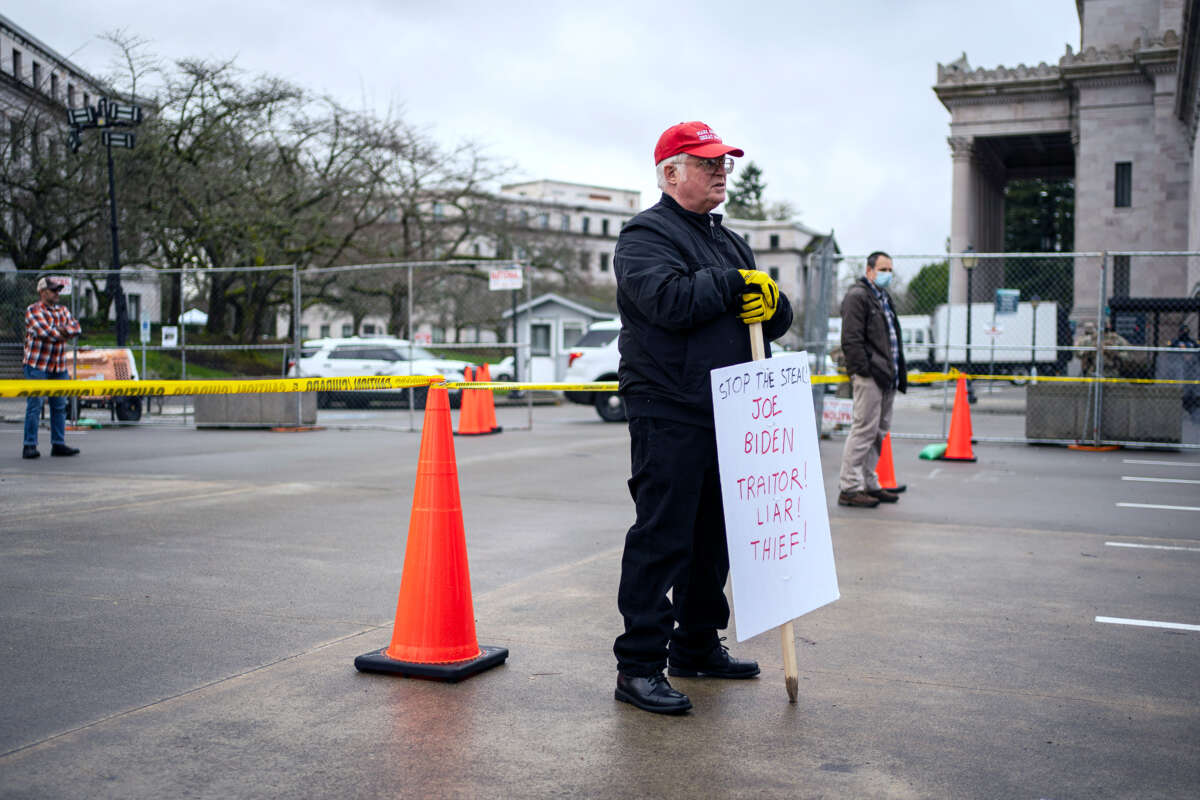At least one tactic in this year’s election subversion playbook is clear. Step one: before Election Day, file a slew of lawsuits making baseless allegations of bloated voter rolls, unlawful voting, and problematic election procedures. Step two: if right-wing activists are unhappy with election results, point to those previously filed cases to justify demands to halt certification or change outcomes. This plan is neither secret nor new. It’s a repeat of 2020, now with more advanced planning. And just like in 2020, the plan should fail.
Conservative activists, operatives, and election denial groups have filed dozens of cases. With a particular intensity in swing states, they are suing to give local election board members the right to refuse to certify election results, exclude mail ballots that arrive after Election Day from the count, limit voting by overseas and military voters, restrict the availability of ballot drop boxes, force states and counties to aggressively purge their voter rolls, and limit when absentee ballots can be requested, submitted, and counted. While the legal claims and unsubstantiated allegations differ somewhat from case to case, they share a common goal: cast enough doubt on American elections to excuse subsequent efforts (whether in court or otherwise) to supersede the will of voters.
These cases are — to use a technical, legal term — bogus. We know this for several reasons. First, plaintiffs’ factual allegations are based on conspiracy theories, misinformation, unsubstantiated data, and claims of widespread voter fraud that have repeatedly been disproven. For example, over a dozen cases are premised at least in part on unsubstantiated fears of noncitizen voting. Yet the evidence could not be clearer: with vanishingly rare exceptions, only eligible citizens vote, and states have multiple systems in place to ensure that remains the case. Dressing up misinformation and conspiracy theories in legal jargon and laundering them through court filings doesn’t make the allegations true.
Second, plaintiffs don’t even seem to be trying to win in court. In many of these right-wing activist cases, plaintiffs have not even bothered to file motions to ask the courts to fix the so-called problems before Election Day. If plaintiffs genuinely believed there were issues with our voting systems and had any evidence to back up such beliefs, they would have requested that courts remedy those problems immediately (by seeking a preliminary injunction, for example). A representative from United Sovereign Americans, a right-wing group that has filed at least nine cases challenging various election procedures, conceded that its goal is to “pre-position standing” for the post-Election Day period. Of course, preemptively filing a lawsuit does not confer standing, which requires actual harm, among other things.
Other cases are mere copycats of losing efforts from years past. For example, one Michigan case seeking more aggressive voter purging effectively replicates three similar cases filed in Michigan in the last five years, all of which plaintiffs voluntarily settled or lost. A federal court dismissed the case today.
Third, even if the legal theories that plaintiffs offer were supported by facts (which they aren’t), they would not warrant the extreme remedies that plaintiffs ultimately seek or that they may request after Election Day: stopping the certification of and overturning election results. In more than 20 cases, for example, plaintiffs allege that states have not done enough to remove ineligible voters from their rolls. The remedy for such a claim is for the state to conduct reasonable voter list maintenance at least 90 days before an election, not to throw away the votes of millions of eligible voters afterward. What’s more, certification is not discretionary — state law has long established that officials have a mandatory duty to certify elections. It’s no surprise, then, that courts have already tossed several of these cases, including in Arizona, Georgia, Maryland, Nevada, and Pennsylvania.
We anticipate that courts will largely reject the unsubstantiated claims in these pre-election cases, just as they did overwhelmingly in 2020.
But winning in court isn’t necessarily the point. We expect that activists will point to the mere existence of ongoing litigation as a basis for slowing, stopping, or altering election processes. Their audience is not just the court of law but the court of public opinion. For Americans primed to believe that voter fraud is rampant and the 2020 election was stolen, partisans who are unhappy with the 2024 results will use the ongoing legal processes in their effort to undermine public confidence and confirm a sense that our democracy is “rigged.”
We’ve been here before, and now we know what to expect. The American public, the press, and courts should not be duped into believing that where there’s smoke, there’s fire — because these cases are nothing but smoke and mirrors.
Our most important fundraising appeal of the year
December is the most critical time of year for Truthout, because our nonprofit news is funded almost entirely by individual donations from readers like you. So before you navigate away, we ask that you take just a second to support Truthout with a tax-deductible donation.
This year is a little different. We are up against a far-reaching, wide-scale attack on press freedom coming from the Trump administration. 2025 was a year of frightening censorship, news industry corporate consolidation, and worsening financial conditions for progressive nonprofits across the board.
We can only resist Trump’s agenda by cultivating a strong base of support. The right-wing mediasphere is funded comfortably by billionaire owners and venture capitalist philanthropists. At Truthout, we have you.
We’ve set an ambitious target for our year-end campaign — a goal of $180,000 to keep up our fight against authoritarianism in 2026. Please take a meaningful action in this fight: make a one-time or monthly donation to Truthout before December 31. If you have the means, please dig deep.
